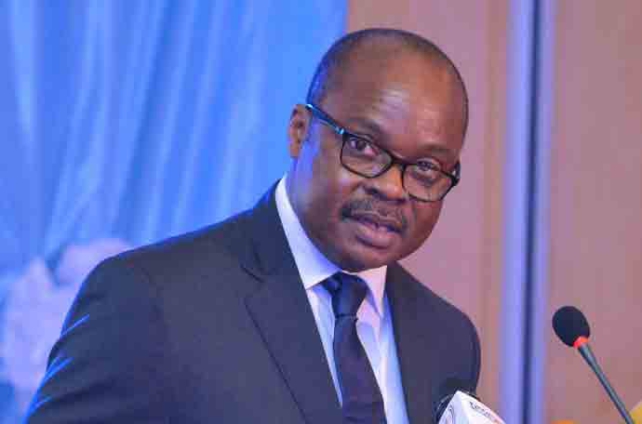The Bank of Ghana has incorporated a limited Asset Quality Review in its supervisory programme for 2023.
This special exercise is being conducted by the Central Bank to assess the health of banks’ loan and investment portfolios to determine whether their asset classifications are in line with the required classification norms as well as International Financial Reporting Standards.
Speaking at the 60th Anniversary Launch of the Chartered Institute of Bankers, Governor of the Bank of Ghana, Dr. Ernest Addison said the move is part of the strategy to strengthen risk and further ensure stability of the banking industry.
As a follow-up to the implementation of Pillar 1 of the Basel II/III implementation in 2018, the Governor said the Central Bank intends to scale-up the regulatory reform agenda through engagements with the Ghana Association of Banks on the roll-out of Pillar 2 of the Basel II/III capital framework. The framework will ensure that banks hold adequate capital for all material risks inherent in their operations.
In this regard, he said the regulatory guidance will be provided to the following aspects of Pillar 2 - Liquidity Risk Management, Internal Capital Adequacy Assessment Process, Guide to Supervisory Intervention, Concentration Risk and Interest Rate Risk in the Banking Book, among others.
The Governor also announce the successful completion if industry training on all seven Ghana Sustainable Banking Principles.
The training for Principle 1 and Principle 2 occurred in 2020 and 2022, respectively. In July 2023, the BOG completed industry training on the remaining principles, Principles 3-7, which was attended by Chief Risk Officers, Chief Compliance Officers and Sustainability Officers from the various banks.
Dr. Addison said tt is expected that this will lead to an improvement in industry reporting on the principles.
The Ghana Sustainable Banking Principles and the Sector Guidance Notes reflect a processed initiative to take account of the environmental considerations, social inclusion, and good governance in the lending decision-making by banks in Ghana. It is also a guide to banks in mainstreaming the fundamental tenets of sustainability in business and operations, leading to enhanced growth and increased returns.
Latest Stories
-
Vasseur questions ‘strange momentum’ of Formula One race director change
10 mins -
“I am disappointed in Kojo Manuel” – Merqury Quaye on “no tie” comment
10 mins -
Nana Kwame Bediako; The beacon of unity
13 mins -
Western Region: NDC youth wing embarks on phase 2 of ‘retail campaign’
39 mins -
Action Chapel International holds annual Impact Convention in November
39 mins -
Jana Foundation urges young women to take up leadership roles
44 mins -
All set for Joy FM Prayer Summit for Peace 2024
55 mins -
Managing Prediabetes with the Help of a Dietitian
1 hour -
Joy FM listeners criticise Achiase Commanding Officer’s election comment
2 hours -
Legal Aid Commission employees threaten strike over poor working conditions
2 hours -
Ghana ranked 7th globally as biggest beneficiary of World Bank funding
2 hours -
IMF board to disburse $360m to Ghana in December after third review
2 hours -
Former Bono Regional NPP organiser donates 13 motorbikes to 12 constituencies
2 hours -
Securities industry: Assets under management estimated at GH¢81.7bn in quarter 3, 2024
2 hours -
Gold Fields Ghana Foundation challenges graduates to maximise benefits of community apprenticeship programme
4 hours

